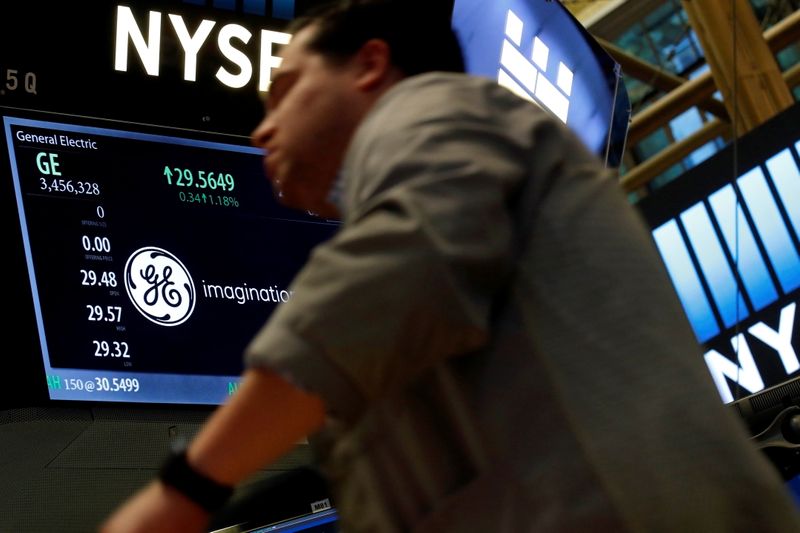 © Reuters
© Reuters
By Yasin Ebrahim
Investing.com -- The Dow ended higher Friday, but that wasn't enough to prevent a weekly loss as tech snapped its winning streak under pressure from surging Treasury yields following further details on the Federal Reserve's plan to rein in inflation.
The Dow Jones Industrial Average gained 0.40%, or 137 points, The S&P 500 fell 0.20%, the Nasdaq slipped 1.3%. All three major averages ended the week in the red.
Technology stocks snapped a three-week winning streak, keeping the broader market in the red as investors remain wary of growth sectors of the market in the wake of surging Treasury yields.
The 10-year Treasury yield jumped above 2.7% for the first time in more than three years on expectations for aggressive Federal Reserve tightening to stem inflation.
The Fed’s March meeting minutes, released earlier this week showed that Fed members appear “poised to hike rates 50bps in May, and initiate a sizable drawdown of the balance sheet beginning next month,” Stifel said in a note.
Big tech including Apple (NASDAQ:AAPL), Microsoft (NASDAQ:MSFT), and Alphabet (NASDAQ:GOOGL) fell more than 1%, while an ongoing decline in the chip stocks added pressure on the broader tech sector.
Banking stocks, which have been under pressure in recent sessions on worries that a potential recession could increase bad debt for banks, finally found some reprieve as investors looked ahead to quarterly results from major Wall Street banks next week.
JPMorgan (NYSE:JPM) reports results on Wednesday, while Citigroup (NYSE:C), Goldman Sachs (NYSE:GS), Wells Fargo (NYSE:WFC), and Morgan Stanley (NYSE:MS) report on Thursday.
"Banks are good place to be in the upcoming economic environment not just because rates are going up, but I think the consumer still is in a position of strength," Jimmy Lee, the founder and CEO of The Wealth Consulting Group, told Investing.com in an interview on Friday.
While rising rates boost lending margins and profitability for banks, the pace of the increase in rates has driven up borrowing costs and impacted demand. The red-hot pace of increasing rates will be determined by whether the Fed follows through on its hawkish plan to tighten monetary policy.
"Most people believe that the Fed is going be very hawkish and and cause a recession, but I just don't think that they will," Lee added. "If the economic data starts to look ugly, I think they will stop tightening immediately."
Energy stocks were up more than 2%, buoyed by rising oil prices as investors weigh up the prospect of energy supply disruptions after the European Union confirmed new sanctions including a coal embargo against Russia over the latter’s invasion of Ukraine.
Despite the rise on Friday, oil prices succumbed to second-weekly loss as countries agreed to release million of barrels of emergency supplies.
Coterra Energy (NYSE:CTRA), EOG Resources (NYSE:EOG), and Occidental Petroleum (NYSE:OXY) were among the biggest gainers with the latter up more than 7%.
In earnings news, WD-40 (NASDAQ:WDFC)’s better-than-expected quarterly earnings and revenue offset softer full-year guidance, sending its share price more than 7% higher.
In other news, Boeing (NYSE:BA) fell 1.7% after a Boeing 757 jet broke in half during Costa Rica emergency landing. United Airlines confirmed it had delayed the return of some grounded Boeing 777 planes until at least May 12.

